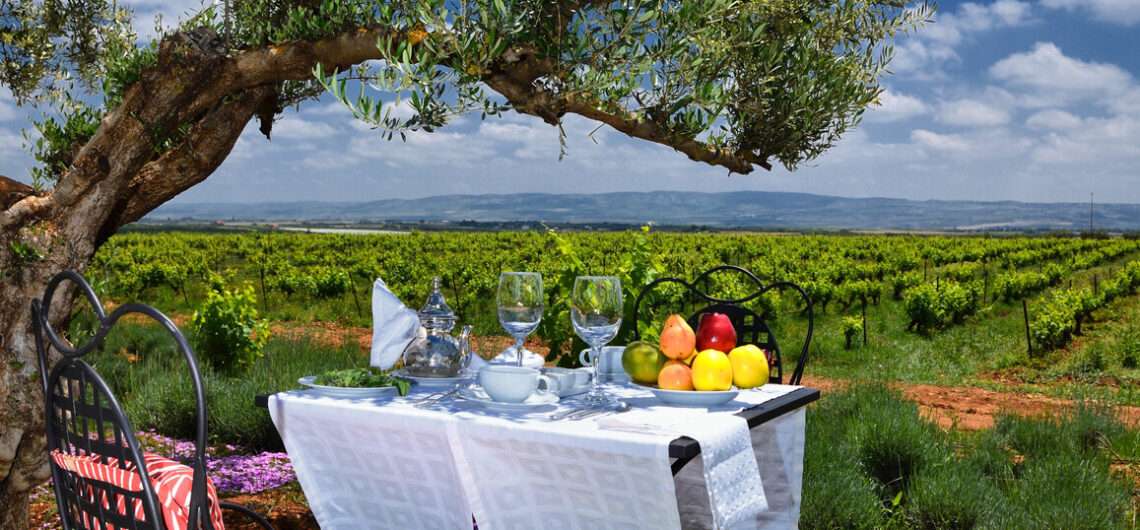The viticulture in Morocco and the planting of the first vineyards date back to the Phoenicians and the Roman colonisation. In ancient times, the major centre of wine production was concentrated around Volubilis. This region is part of the present-day city of Meknes. Morocco remains one of the last lands wild vines on earth. As early as antiquity, Pausanias the Periegete noted that the inhabitants of Lixus, a city founded by the Phoenicians on the right bank of the Loukkos wadi, consumed the fruit. Louis Levadoux indicates that 'The Berbers do not neglect this supplement.' Indeed, when autumn comes, the people of Guergour go high up into the forests of the Atlas. They pick the grapes from the trees to eat them fresh or dry them on racks. Click here, to book a place with us for a winery tasting tour. The ampelographer was able to find, in the valley of the Oued Titria, these lambrusques known as Aneb djalia. He notes that "Some of them bear a strong resemblance to the grape varieties cultivated by the Berbers". The first wines were produced around the second century BC during the installation of Phoenician and Greek trading posts. It was the Roman colonisation that developed viticulture in Morocco, allowing the wines of Mauritania to be presented on the patrician tables. This province corresponded to the northern part of present-day Morocco. It extended from the north, to Salé , to Volubilis in the south, and to the east in the Oued Laou river. The main cities were Volubilis, Tingis (Tangier), Lixus (Larache) and Tamuda (Tetouan). The Muslim conquest did not make the North African viticulture disappear but rather privileged the table grape. The Moroccan, Islamized, Berbers brought their varieties when they arrived in the Iberian Peninsula. One of these is still cultivated
The viticulture in Morocco and the planting of the first vineyards date back to the Phoenicians and the Roman colonisation. In ancient times, the major centre of wine production was concentrated around Volubilis. This region is part of the present-day city of Meknes.
Morocco remains one of the last lands wild vines on earth. As early as antiquity, Pausanias the Periegete noted that the inhabitants of Lixus, a city founded by the Phoenicians on the right bank of the Loukkos wadi, consumed the fruit. Louis Levadoux indicates that ‘The Berbers do not neglect this supplement.’ Indeed, when autumn comes, the people of Guergour go high up into the forests of the Atlas. They pick the grapes from the trees to eat them fresh or dry them on racks.
Click here, to book a place with us for a winery tasting tour.


